Lexus ES VS VW Polo – Specs, Efficiency & Price Comparison
Which model is the better choice – the Lexus ES or the VW Polo? We compare performance (218 HP vs 207 HP), boot capacity (454 L vs 351 L), efficiency (5.10 L vs 5.10 L), and of course, the price (46600 £ vs 17000 £).
Find out now which car fits your needs better!
The Lexus ES (Sedan) is powered by a Full Hybrid engine and comes with a Automatic transmission. In comparison, the VW Polo (Hatchback) features a Petrol engine and a Manuel or Automatic gearbox.
When it comes to boot capacity, the Lexus ES offers 454 L, while the VW Polo provides 351 L – depending on what matters most to you. If you’re looking for more power, you’ll need to decide whether the 218 HP of the Lexus ES or the 207 HP of the VW Polo suits your needs better.
There are also differences in efficiency: 5.10 L vs 5.10 L. In terms of price, the Lexus ES starts at 46600 £, while the VW Polo is available from 17000 £.
Compare all the key specs now and find out which model fits your lifestyle best!
Lexus ES
The Lexus ES represents a blend of luxury and comfort, offering a smooth driving experience that is characteristic of the brand. With its elegant design and meticulously crafted interior, it provides a serene environment for both driver and passengers. The inclusion of advanced safety features and cutting-edge technology enhances its appeal, ensuring that every journey is not only enjoyable but also secure.
details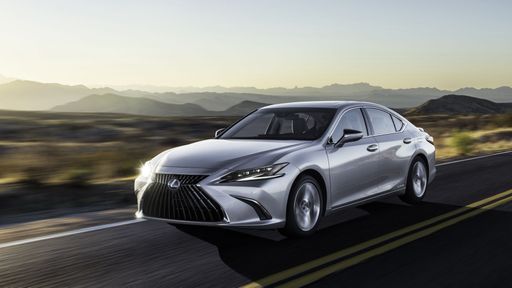 @ toyota-media.de
@ toyota-media.de
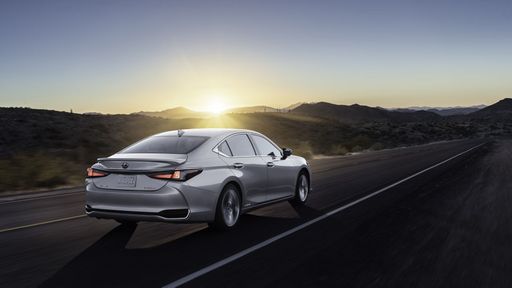 @ toyota-media.de
@ toyota-media.de
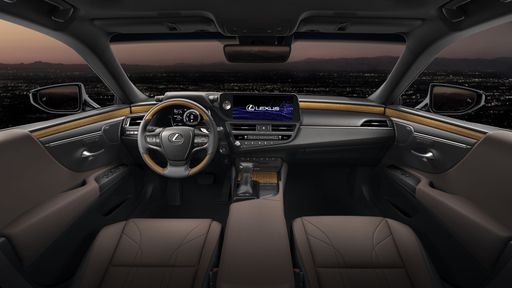 @ toyota-media.de
@ toyota-media.de
VW Polo
The VW Polo remains a popular choice in the compact car segment, known for its sleek design and sophisticated styling. Inside, it offers a surprisingly spacious cabin with high-quality materials and intuitive technology features, ensuring a comfortable driving experience. Its agile handling and responsive performance make it an excellent option for both city commuting and longer journeys.
details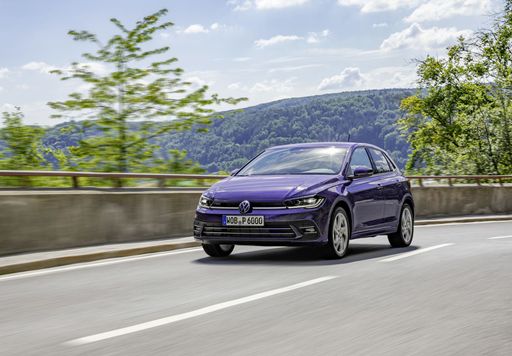 @ Volkswagen
@ Volkswagen
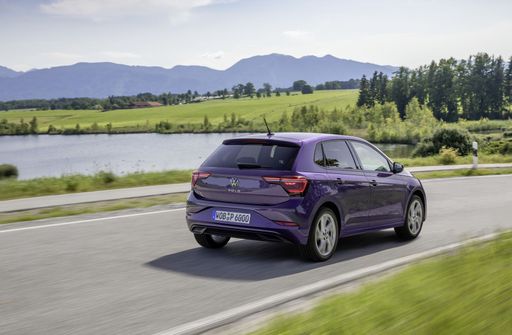 @ Volkswagen
@ Volkswagen
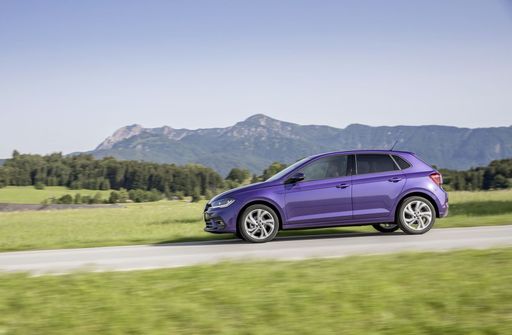 @ Volkswagen
@ Volkswagen
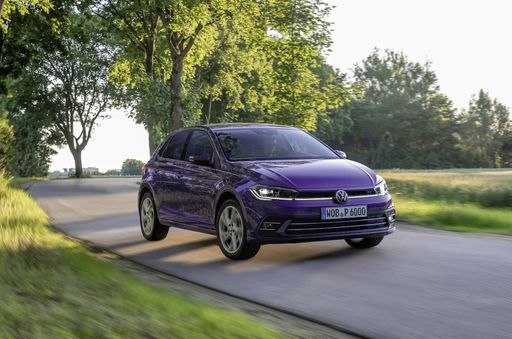 @ Volkswagen
@ Volkswagen
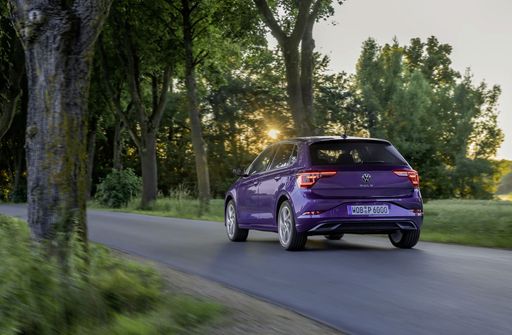 @ Volkswagen
@ Volkswagen
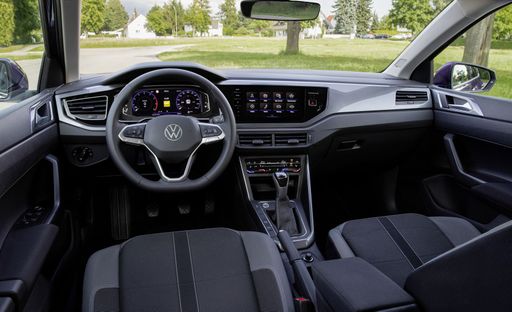 @ Volkswagen
@ Volkswagen

|

|
|
|
|
Costs and Consumption |
|
|---|---|
|
Price
46600 - 59300 £
|
Price
17000 - 30400 £
|
|
Consumption L/100km
5.10 L
|
Consumption L/100km
5.1 - 6.5 L
|
|
Consumption kWh/100km
-
|
Consumption kWh/100km
-
|
|
Electric Range
-
|
Electric Range
-
|
|
Battery Capacity
-
|
Battery Capacity
-
|
|
co2
115 g/km
|
co2
116 - 149 g/km
|
|
Fuel tank capacity
50 L
|
Fuel tank capacity
40 L
|
Dimensions and Body |
|
|---|---|
|
Body Type
Sedan
|
Body Type
Hatchback
|
|
Seats
5
|
Seats
5
|
|
Doors
4
|
Doors
5
|
|
Curb weight
1680 kg
|
Curb weight
1143 - 1378 kg
|
|
Trunk capacity
454 L
|
Trunk capacity
351 L
|
|
Length
4975 mm
|
Length
4074 mm
|
|
Width
1865 mm
|
Width
1751 mm
|
|
Height
1445 mm
|
Height
1431 - 1451 mm
|
|
Payload
470 kg
|
Payload
432 - 457 kg
|
Engine and Performance |
|
|---|---|
|
Engine Type
Full Hybrid
|
Engine Type
Petrol
|
|
Transmission
Automatic
|
Transmission
Manuel, Automatic
|
|
Transmission Detail
-
|
Transmission Detail
Schaltgetriebe, Automat. Schaltgetriebe (Doppelkupplung)
|
|
Drive Type
Front-Wheel Drive
|
Drive Type
Front-Wheel Drive
|
|
Power HP
218 HP
|
Power HP
80 - 207 HP
|
|
Acceleration 0-100km/h
8.90 s
|
Acceleration 0-100km/h
6.5 - 15.6 s
|
|
Max Speed
180 km/h
|
Max Speed
171 - 240 km/h
|
|
Torque
-
|
Torque
93 - 320 Nm
|
|
Number of Cylinders
4
|
Number of Cylinders
3 - 4
|
|
Power kW
160 kW
|
Power kW
59 - 152 kW
|
|
Engine capacity
2487 cm3
|
Engine capacity
999 - 1984 cm3
|
General |
|
|---|---|
|
Model Year
2024
|
Model Year
2024
|
|
CO2 Efficiency Class
C
|
CO2 Efficiency Class
D, E
|
|
Brand
Lexus
|
Brand
VW
|
Lexus ES
Explore the Alluring Elegance of the Lexus ES
The Lexus ES continues to uphold its reputation as a beacon of luxury and innovation in the automotive world. Known for its graceful design and premium feel, the ES series offers an impressive blend of performance and efficiency. With a focus on technical prowess and sustainability, this model is a testament to Lexus's commitment to excellence.
Performance and Efficiency: A Seamless Blend
At the heart of the Lexus ES is its full-hybrid technology. The 218 PS powertrain, featuring a 4-cylinder engine, harmoniously integrates a combustion engine with an electric motor to provide a remarkable drive. The ES achieves its impressive power output of 160 kW while maintaining a commendable fuel consumption of 5.1 L/100 km. This balance between power and efficiency is manifested in its acceleration from 0 to 100 km/h in just 8.9 seconds, powering seamlessly through a cost-effective CVT-gearbox with front-wheel drive. Despite its athletic capabilities, the ES remains well within the bounds of responsible emissions with a CO2 output rated at 115 g/km.
Design and Comfort: A Statement of Luxury
The Lexus ES's exterior is crafted as a testament to sophistication. Its sleek silhouette measures 4975 mm in length, 1865 mm in width, and 1445 mm in height, with a striking aesthetics that demands attention. The interior offers spacious comfort with seating for five, highlighted by high-quality materials and meticulous attention to detail. Additionally, the boot space offers a generous 454 litres capacity, ensuring practicality is not compromised.
Technological Advancements and Features
Equipped with the latest in automotive technology, the Lexus ES features a suite of advanced driver-assistance systems for enhanced safety and convenience. From its responsive infotainment system to the intuitive controls, each feature has been designed with the driver in mind. For those seeking variety, the car is available in several trim levels including the Automatik, Business Edition Automatik, Executive Automatik, and Luxury Automatik, offering a tailored experience for every discerning driver.
Cost of Ownership
With prices ranging from €54,350 to €69,200, the Lexus ES provides a competitive edge in the luxury segment with its multitude of features. The running costs are also reasonable, with expense estimates ranging from €1,289 to €1,497 per month and a cost per kilometre between 51.6 and 59.9 cents. This cost efficiency makes it a feasible choice for those looking to balance luxury with practicality.
Conclusion: A Hybrid of Innovation and Style
The Lexus ES stands as a prime example of how hybrid technology can transform the driving experience, merging the thrill of performance with the benefits of fuel efficiency. With its state-of-the-art features and impeccable build, the ES is a remarkable vehicle for those who seek luxury and innovation on the road.
VW Polo
Unveiling the VW Polo: A Compact Car with Big Ambition
The VW Polo, with its sleek hatchback design, stands out in the compact car segment, offering a blend of practicality and innovation. Volkswagen has continued to refine this popular model, ensuring that each new iteration provides cutting-edge technology and enhanced driving dynamics.
A Closer Look at the Mechanics
Under the bonnet, the VW Polo offers a series of efficient petrol engines ranging from 80 to 207 horsepower. These engines, coupled with either a manual or dual-clutch automatic transmission, provide a smooth and responsive driving experience tailored to various driving preferences.
Efficiency Meets Performance
The fuel consumption of the VW Polo is impressively economical, varying between 5.2 and 6.5 litres per 100 km, depending on the engine and transmission combination. Emphasising the car's commitment to sustainability, the CO2 emissions vary between 118 to 149 g/km, placing it within the D to E efficiency classes.
Design and Dimensions
The Polo's dimensions, featuring a length of 4074 mm, width of 1751 mm, and a height ranging from 1431 to 1451 mm, offer a compact profile ideal for urban driving. Despite its size, the Polo provides a generous 351-litre boot space, catering to everyday needs and beyond. With a five-door configuration, it balances convenience and style.
Advanced Features and Variants
The VW Polo 2024 model year comes with a variety of trim levels, from the practical "Life" to the sportier "R-Line", each bringing distinct features and enhancements. High-tech interiors, usability enhancements, and a host of driver-assistance systems are standard, reflecting Volkswagen's dedication to integrating innovation into its vehicles.
Tech-Savvy Interiors
Inside, the Polo is equipped with modern infotainment systems, Apple CarPlay, Android Auto, and wireless connectivity options, ensuring that drivers and passengers remain connected while on the move. The ergonomically designed cabin and digital cockpit enhance the user experience, making every drive comfortable and intuitive.
Conclusion: The All-Rounder in the Compact Car Market
The VW Polo continues to be a compelling choice for those seeking a compact, reliable, and technologically advanced vehicle. With its range of engines, well-appointed interiors, and a robust suite of features, the Polo remains a significant player in its class, meeting the demands of a wide range of drivers.
The prices and data displayed are estimates based on German list prices and may vary by country. This information is not legally binding.
